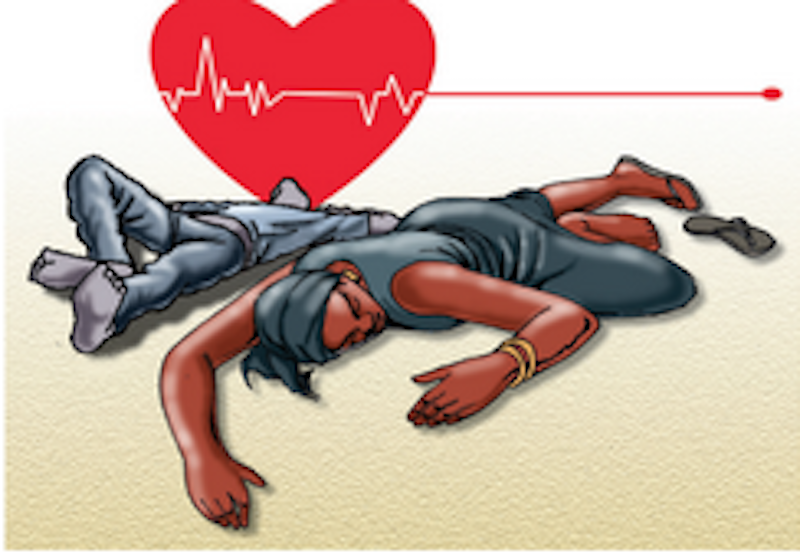Latest Headlines
THE SUDDEN DEATH SYNDROME

A healthy lifestyle is of considerable importance in minimising the affliction
A female journalist working with an international organisation, within 10 minutes of arriving her office, was pronounced dead. Similarly, a lawmaker in Sokoto State had just arrived at his office when he slumped. He arrived the hospital dead. Since no autopsy was conducted in any of these cases before the burials, experts believe there may be no mystery involved in many of these rapid and unexpected deaths among otherwise healthy persons.
Sudden death is said to occur when a clot suddenly cuts off the blood flow, thus preventing oxygen from getting to the heart. This ultimately results in the loss of heart muscle. According to health experts, hundreds of thousands have lost their lives to sudden death in recent times, even though it’s only the cases of prominent Nigerians that are mostly heard. But so many questions remain addressed: What are the causes of unexpected deaths, often called sudden death syndrome? What are the predisposing symptoms?
Renowned cardiologist and Nigerian Heart Foundation (NHF) boss, Kingsley Akinroye, defines sudden death as an “unexpected natural death due to cardiovascular disease, which occurs within one hour of the onset of symptoms.” He said a major proportion of sudden death “is of cardiac (heart) origin.” According to experts, heart disease is more prevalent in adults in their 30s and 40s and affects men twice as it does affect women. Some of the diseases are discovered and treated while the person is alive while, among many others, it may go unnoticed until the tragedy occurs. It could also occur because of wrong diagnosis.
Some of the problems arise in some patients when there are abnormal heart rhythms, and the heart is unable to pump blood. Within minutes, this could cause death unless emergency treatment is begun immediately. In the case of heart attack, “there is a blockage in one or more of the coronary arteries, preventing the heart from receiving enough oxygen-rich blood,” said Olayiwola Ajileye, chief executive officer of Valor Health Options Ltd., United Kingdom. “If the Oxygen in the blood cannot reach the heart muscle, the heart becomes damaged.”
Incidentally, many of these ailments come without warning signs. In the case of sudden cardiac arrest for instance, over half of the victims die without symptoms. When there are signs, they come in the form of “racing heartbeat or they may feel dizzy, alerting them that a potentially dangerous heart problem has started.” Other symptoms listed include headache, chest discomfort, breathing problems, blurring vision and convulsion.
A few predisposing illnesses such as hypertension, stress, high cholesterol, and diabetes may precipitate a sudden death syndrome. In a country where many of the citizens resort to self-medication to bypass the cost of seeing a medical doctor, abuse of medications can result in dangerous drug interactions with lethal consequences, particularly among those who have pre-existing medical problems. Many people who are obese or suffering from ill-managed diabetes can easily fall victim of heart diseases and unexpected death.
However, the frequency of these deaths arising from cardiovascular or related diseases can be brought down considerably if people take time in keeping regular follow-up appointments with their doctors, taking medications as prescribed and making certain lifestyle changes. We urge Nigerians to attend regular health screening, at least once a year. If they can afford it, it should be as regular as they service their cars and generators. This gives them an opportunity to be updated on their health situation. In addition, quitting such habits like smoking, losing weight among those who are obese and exercising regularly can help in containing incidents of sudden death.










